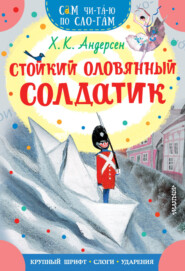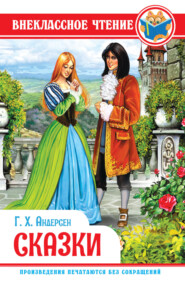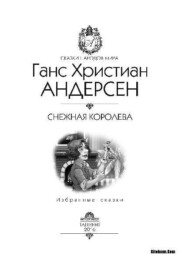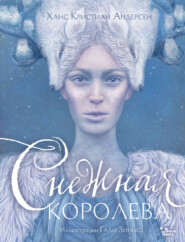По всем вопросам обращайтесь на: info@litportal.ru
(©) 2003-2024.
✖
O. T., A Danish Romance
Настройки чтения
Размер шрифта
Высота строк
Поля
The Kammerjunker could not forget the Swedish bloodbath, the execution of Torben Oxe, and all that can be said against the unfortunate king.
Otto drove him completely out of the field, in part from his enthusiasm for Christian the Second, but still more because it was the Kammerjunker with whom he was contending. Sophie took Otto’s side, her eye sparkled applause, and the victory could not be other than his.
“What is it that the poet said of the fate of a king?” said Sophie.
“Woe’s me for him
Who to the world shows more of ill than good!
The good each man ascribes unto himself,
Whilst on him only rest the crimes o’ th’ age.”
“Had Christian been so fortunate as to have subdued the rebellious nobles,” continued Otto, “could he have carried out his bold plans, then they would have called him Christian the Great: it is not the active mind, but the failure in any design, which the world condemns.”
Louise nevertheless took the side of the Kammerjunker, and therefore these two went together up the aisle toward the tomb of the Glorup family. Wilhelm and his mother were already gone out of the church.
“I envy you your eloquence!” said Sophie, and looked with an expression of love into Otto’s face; she bent herself over the railing around the tomb, and looked thoughtfully upon the stone. Thoughts of love were animated in Otto’s soul.
“Intellect and heart!” exclaimed he, “must admire that which is great: you possess both these!” He seized her hand.
A faint crimson passed over Sophie’s cheeks. “The others are gone out!” she said; “come, let us go up to the chancel.”
“Up to the altar!” said Otto; “that is a bold course for one’s whole life!”
Sophie looked jestingly at him. “Do you see the monument there within the pillars?” asked she after a short pause; “the lady with the crossed arms and the colored countenance? In one night she danced twelve knights to death, the thirteenth, whom she had invited for her partner, cut her girdle in two in the dance and she fell dead to the earth!”[34 - Author’s Note: In Thiele’s Danish Popular Tradition it is related that she was one Margrethe Skofgaard of Sanderumgaard, and that she died at a ball, where she had danced to death twelve knights. The people relate it with a variation as above; it is probable that it is mingled with a second tradition, for example, that of the blood-spots at Koldinghuus, which relates that an old king was so angry with his daughter that he resolved to kill her, and ordered that his knights should dance with her one after another until the breath was out of her. Nine had danced with her, and then came up the king himself as the tenth, and when he became weary he cut her girdle in two, on which the blood streamed from her mouth and she died.]
“She was a northern Turandot!” said Otto; “the stony heart itself was forced to break and bleed. There is really a jest in having the marble painted. She stands before future ages as if she lived—a stone image, white and red, only a mask of beauty. She is a warning to young ladies!”
“Yes, against dancing!” said Sophie, smiling at Otto’s extraordinary gravity.
“And yet it must be a blessed thing,” exclaimed he, “a very blessed thing, amid pealing music, arm-in-arm with one’s beloved, to be able to dance life away, and to sink bleeding before her feet!”
“And yet only to see that she would dance with a new one!” said Sophie.
“No, no!” exclaimed Otto, “that you could not do! that you will not do! O Sophie, if you knew!”—He approached her still nearer, bent his head toward her, and his eye had twofold fire and expression in it.
“You must come with us and see the cats!” said the Kammerjunker, and sprang in between them.
“Yes, it is charming!” said Sophie. “You will have an opportunity, Mr. Thostrup, of moralizing over the perishableness of female beauty!”
“In the evening, when we drive home together,” thought Otto to himself consolingly, “in the mild summer-evening no Kammerjunker will disturb me. It must, it shall be decided! Misfortune might subject the wildness of childhood, but it gave me confidence, it never destroyed my independence; Love has made me timid,—has made me weak. May I thereby win a bride?”
Gravely and with a dark glance he followed after Sophie and her guide.
CHAPTER XL
“In vain his beet endeavors were;
Dull was the evening, and duller grew.”
—LUDOLF SCHLEF.
“Seest thou how its little life
The bird hides in the wood?
Wilt thou be my little wife—
Then do it soon. Good!
—A bridegroom am I.”
—Arion.
Close beside St. Knud’s Church, where once the convent stood, is now the dwelling of a private man.[35 - Author’s Note: See Oehlenschläger’s Jorney to Funen.] The excellent hostess here, who once charmed the public on the Danish stage as Ida Munster, awaited the family to dinner.
After dinner they wandered up and down the garden, which extended to the Odense River.
In the dusk of evening Otto went to visit the German Heinrich; he had mentioned it to Louise, and she promised to divert attention from him whilst he was away.
The company took coffee in the garden-house; Otto walked in deep thought in the avenue by the side of the river. The beautiful scene before him riveted his eye. Close beside lay a water-mill, over the two great wheels of which poured the river white as milk. Behind this was thrown a bridge, over which people walked and drove. The journeyman-miller stood upon the balcony, and whistled an air. It was such a picture as Christian Winther and Uhland give in their picturesque poems. On the other side of the mill arose tall poplars half-buried in the green meadow, in which stood the nunnery; a nun had once drowned herself where now the red daisies grow.
A strong sunlight lit up the whole scene. All was repose and summer warmth. Suddenly Otto’s ear caught the deep and powerful tones of an organ; he turned himself round. The tones, which went to his heart, came from St. Knud’s Church, which lay close beside the garden. The sunshine of the landscape, and the strength of the music, gave, as it were, to him light and strength for the darkness toward which he was so soon to go.
The sun set; and Otto went alone across the market-place toward the old corner house, where German Heinrich practiced his arts. Upon this place stood St. Albani’s Church, where St. Knud, betrayed by his servant Blake,[36 - Author’s Note: Whence has arisen the popular expression of “being a false Blake.”] was killed by the tumultuous rebels. The common people believe that from one of the deep cellars under this house proceeds a subterranean passage to the so-called “Nun’s Hill.” At midnight the neighboring inhabitants still hear a roaring under the marketplace, as if of the sudden falling of a cascade. The better informed explain it as being a concealed natural water-course, which has a connection with the neighboring river. In our time the old house is become a manufactory; the broken windows, the gaps of which are repaired either with slips of wood or with paper, the quantity of human bones which are found in the garden, and which remain from the time when this was a church-yard, give to the whole place a peculiar interest to the common people of Odense.
Entering the house at the front, it is on the same level as the market-place; the back of the house, on the contrary, descends precipitously into the garden, where there are thick old walls and foundations. The situation is thus quite romantic; just beside it is the old nunnery, with its dentated gables, and not far off the ruins, in whose depths the common people believe that there resides an evil being, “the river-man,” who annually demands his human sacrifice, which he announces the night before. Behind this lie meadows, villas, and green woods.
On the other side of the court, in a back gate-way, German Heinrich had set up his theatre. The entrance cost eight skillings; people of condition paid according to their own will.
Otto entered during the representation. A cloth constituted the whole scenic arrangement. In the middle of the floor sat a horrible goblin, with a coal-black Moorish countenance and crispy hair upon its head. An old bed-cover concealed the figure, yet one saw that it was that of a woman.
The audience consisted of peasants and street boys. Otto kept himself in the background, and remained unobserved by Heinrich.
The representation was soon at an end, and the crowd dispersed. It was then that Otto first came forward.
“We must speak a few words together!” said he. “Heinrich, you have not acted honestly by me! The girl is not that which you represented her to be; you have deceived me: I demand an explanation!”
German Heinrich stood silent, but every feature eloquently expressed first amazement, and then slyness and cunning; his knavish, malicious eye, measured Otto from top to toe.
“Nay; so then, Mr. Thostrup, you are convinced, are you, that I have been cheating you?” said he. “If so, why do you come to me? In that case there needs no explanation. Ask herself there!” And so saying he pointed to the black-painted figure.
“Do not be too proud, Otto!” said she, smiling; “thou couldst yet recognize thy sister, although she has a little black paint on her face!”
Otto riveted a dark, indignant glance upon her, pressed his lips together, and tried to collect himself. “It is my firm determination to have the whole affair searched into,” said he, with constrained calmness.
“Yes, but it will bring you some disagreeables!” said Heinrich, and laughed scornfully.
“Do not laugh in that manner when I speak to you!” said Otto, with flushing cheeks.
Heinrich leaned himself calmly against the door which led into the garden.
“I am acquainted with the head of the police,” said Otto, “and I might leave the whole business in his hands. But I have chosen a milder way; I am come myself. I shall very soon leave Denmark; I shall go many hundred miles hence shall, probably, never return; and thus you see the principal ground for my coming to you is a whim: I will know wherefore you have deceived me; I will know what is the connection between you and her.”
“Nay; so, then, it is that that you want to know?” said Heinrich, with a malicious glance. “Yes, see you, she is my best beloved; she shall be my wife: but your sister she is for all that, and that remains so!”
Otto drove him completely out of the field, in part from his enthusiasm for Christian the Second, but still more because it was the Kammerjunker with whom he was contending. Sophie took Otto’s side, her eye sparkled applause, and the victory could not be other than his.
“What is it that the poet said of the fate of a king?” said Sophie.
“Woe’s me for him
Who to the world shows more of ill than good!
The good each man ascribes unto himself,
Whilst on him only rest the crimes o’ th’ age.”
“Had Christian been so fortunate as to have subdued the rebellious nobles,” continued Otto, “could he have carried out his bold plans, then they would have called him Christian the Great: it is not the active mind, but the failure in any design, which the world condemns.”
Louise nevertheless took the side of the Kammerjunker, and therefore these two went together up the aisle toward the tomb of the Glorup family. Wilhelm and his mother were already gone out of the church.
“I envy you your eloquence!” said Sophie, and looked with an expression of love into Otto’s face; she bent herself over the railing around the tomb, and looked thoughtfully upon the stone. Thoughts of love were animated in Otto’s soul.
“Intellect and heart!” exclaimed he, “must admire that which is great: you possess both these!” He seized her hand.
A faint crimson passed over Sophie’s cheeks. “The others are gone out!” she said; “come, let us go up to the chancel.”
“Up to the altar!” said Otto; “that is a bold course for one’s whole life!”
Sophie looked jestingly at him. “Do you see the monument there within the pillars?” asked she after a short pause; “the lady with the crossed arms and the colored countenance? In one night she danced twelve knights to death, the thirteenth, whom she had invited for her partner, cut her girdle in two in the dance and she fell dead to the earth!”[34 - Author’s Note: In Thiele’s Danish Popular Tradition it is related that she was one Margrethe Skofgaard of Sanderumgaard, and that she died at a ball, where she had danced to death twelve knights. The people relate it with a variation as above; it is probable that it is mingled with a second tradition, for example, that of the blood-spots at Koldinghuus, which relates that an old king was so angry with his daughter that he resolved to kill her, and ordered that his knights should dance with her one after another until the breath was out of her. Nine had danced with her, and then came up the king himself as the tenth, and when he became weary he cut her girdle in two, on which the blood streamed from her mouth and she died.]
“She was a northern Turandot!” said Otto; “the stony heart itself was forced to break and bleed. There is really a jest in having the marble painted. She stands before future ages as if she lived—a stone image, white and red, only a mask of beauty. She is a warning to young ladies!”
“Yes, against dancing!” said Sophie, smiling at Otto’s extraordinary gravity.
“And yet it must be a blessed thing,” exclaimed he, “a very blessed thing, amid pealing music, arm-in-arm with one’s beloved, to be able to dance life away, and to sink bleeding before her feet!”
“And yet only to see that she would dance with a new one!” said Sophie.
“No, no!” exclaimed Otto, “that you could not do! that you will not do! O Sophie, if you knew!”—He approached her still nearer, bent his head toward her, and his eye had twofold fire and expression in it.
“You must come with us and see the cats!” said the Kammerjunker, and sprang in between them.
“Yes, it is charming!” said Sophie. “You will have an opportunity, Mr. Thostrup, of moralizing over the perishableness of female beauty!”
“In the evening, when we drive home together,” thought Otto to himself consolingly, “in the mild summer-evening no Kammerjunker will disturb me. It must, it shall be decided! Misfortune might subject the wildness of childhood, but it gave me confidence, it never destroyed my independence; Love has made me timid,—has made me weak. May I thereby win a bride?”
Gravely and with a dark glance he followed after Sophie and her guide.
CHAPTER XL
“In vain his beet endeavors were;
Dull was the evening, and duller grew.”
—LUDOLF SCHLEF.
“Seest thou how its little life
The bird hides in the wood?
Wilt thou be my little wife—
Then do it soon. Good!
—A bridegroom am I.”
—Arion.
Close beside St. Knud’s Church, where once the convent stood, is now the dwelling of a private man.[35 - Author’s Note: See Oehlenschläger’s Jorney to Funen.] The excellent hostess here, who once charmed the public on the Danish stage as Ida Munster, awaited the family to dinner.
After dinner they wandered up and down the garden, which extended to the Odense River.
In the dusk of evening Otto went to visit the German Heinrich; he had mentioned it to Louise, and she promised to divert attention from him whilst he was away.
The company took coffee in the garden-house; Otto walked in deep thought in the avenue by the side of the river. The beautiful scene before him riveted his eye. Close beside lay a water-mill, over the two great wheels of which poured the river white as milk. Behind this was thrown a bridge, over which people walked and drove. The journeyman-miller stood upon the balcony, and whistled an air. It was such a picture as Christian Winther and Uhland give in their picturesque poems. On the other side of the mill arose tall poplars half-buried in the green meadow, in which stood the nunnery; a nun had once drowned herself where now the red daisies grow.
A strong sunlight lit up the whole scene. All was repose and summer warmth. Suddenly Otto’s ear caught the deep and powerful tones of an organ; he turned himself round. The tones, which went to his heart, came from St. Knud’s Church, which lay close beside the garden. The sunshine of the landscape, and the strength of the music, gave, as it were, to him light and strength for the darkness toward which he was so soon to go.
The sun set; and Otto went alone across the market-place toward the old corner house, where German Heinrich practiced his arts. Upon this place stood St. Albani’s Church, where St. Knud, betrayed by his servant Blake,[36 - Author’s Note: Whence has arisen the popular expression of “being a false Blake.”] was killed by the tumultuous rebels. The common people believe that from one of the deep cellars under this house proceeds a subterranean passage to the so-called “Nun’s Hill.” At midnight the neighboring inhabitants still hear a roaring under the marketplace, as if of the sudden falling of a cascade. The better informed explain it as being a concealed natural water-course, which has a connection with the neighboring river. In our time the old house is become a manufactory; the broken windows, the gaps of which are repaired either with slips of wood or with paper, the quantity of human bones which are found in the garden, and which remain from the time when this was a church-yard, give to the whole place a peculiar interest to the common people of Odense.
Entering the house at the front, it is on the same level as the market-place; the back of the house, on the contrary, descends precipitously into the garden, where there are thick old walls and foundations. The situation is thus quite romantic; just beside it is the old nunnery, with its dentated gables, and not far off the ruins, in whose depths the common people believe that there resides an evil being, “the river-man,” who annually demands his human sacrifice, which he announces the night before. Behind this lie meadows, villas, and green woods.
On the other side of the court, in a back gate-way, German Heinrich had set up his theatre. The entrance cost eight skillings; people of condition paid according to their own will.
Otto entered during the representation. A cloth constituted the whole scenic arrangement. In the middle of the floor sat a horrible goblin, with a coal-black Moorish countenance and crispy hair upon its head. An old bed-cover concealed the figure, yet one saw that it was that of a woman.
The audience consisted of peasants and street boys. Otto kept himself in the background, and remained unobserved by Heinrich.
The representation was soon at an end, and the crowd dispersed. It was then that Otto first came forward.
“We must speak a few words together!” said he. “Heinrich, you have not acted honestly by me! The girl is not that which you represented her to be; you have deceived me: I demand an explanation!”
German Heinrich stood silent, but every feature eloquently expressed first amazement, and then slyness and cunning; his knavish, malicious eye, measured Otto from top to toe.
“Nay; so then, Mr. Thostrup, you are convinced, are you, that I have been cheating you?” said he. “If so, why do you come to me? In that case there needs no explanation. Ask herself there!” And so saying he pointed to the black-painted figure.
“Do not be too proud, Otto!” said she, smiling; “thou couldst yet recognize thy sister, although she has a little black paint on her face!”
Otto riveted a dark, indignant glance upon her, pressed his lips together, and tried to collect himself. “It is my firm determination to have the whole affair searched into,” said he, with constrained calmness.
“Yes, but it will bring you some disagreeables!” said Heinrich, and laughed scornfully.
“Do not laugh in that manner when I speak to you!” said Otto, with flushing cheeks.
Heinrich leaned himself calmly against the door which led into the garden.
“I am acquainted with the head of the police,” said Otto, “and I might leave the whole business in his hands. But I have chosen a milder way; I am come myself. I shall very soon leave Denmark; I shall go many hundred miles hence shall, probably, never return; and thus you see the principal ground for my coming to you is a whim: I will know wherefore you have deceived me; I will know what is the connection between you and her.”
“Nay; so, then, it is that that you want to know?” said Heinrich, with a malicious glance. “Yes, see you, she is my best beloved; she shall be my wife: but your sister she is for all that, and that remains so!”

















